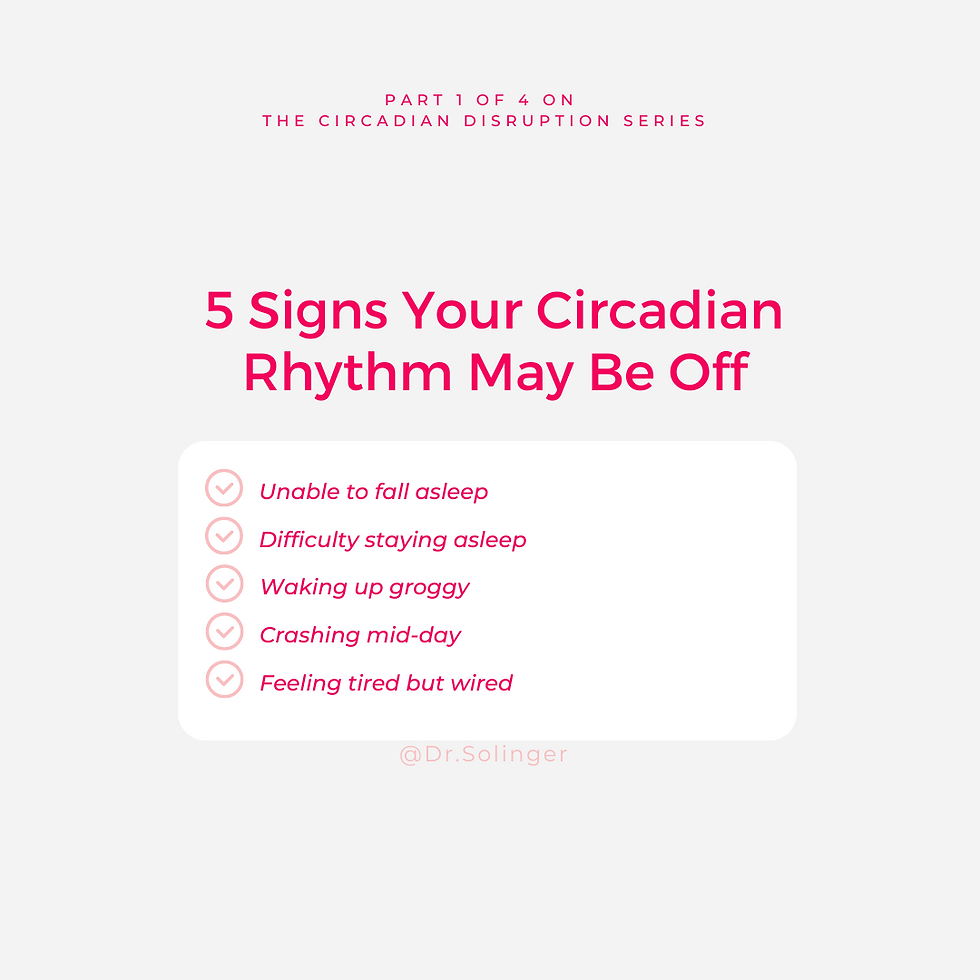Circadian Disruption
- Dr. Sarah Solinger

- Sep 19, 2023
- 2 min read

Circadian disruption is pervasive and can occur at multiple organizational levels, contributing to poor health outcomes at individual and population levels. Evidence points to a bidirectional relationship, in that circadian disruption increases disease severity and many diseases can disrupt circadian rhythms. Importantly, circadian disruption can increase the risk for the expression and development of neurologic, psychiatric, cardiometabolic, and immune disorders. Thus, harnessing the rich findings from preclinical and translational research in circadian biology to enhance health via circadian-based approaches represents a unique opportunity for personalized/precision medicine and overall societal well-being.
5 Signs Your Circadian Rhythm May Be Off
Daily rhythms keep your body ticking like a clock.
It’s true for morning glories, crickets, birds, dogs, and yes—humans too.
Here’s a non-exhaustive list of body processes that follow a 24-hour clock:
✔️ Hormones
✔️ Blood Pressure
✔️ Blood Sugar
✔️ Immune Function
✔️ Detoxification
✔️ Digestion
That’s right—nearly every body process has a daily cycle.
⏰ It’s called the circadian rhythm ⏰
We have a master circadian clock in a specialized area of the brain called the suprachiasmatic nucleus (SCN) plus self-regulating clocks in the gut, liver, and other internal organs.
BUT…do you know what happens when we eat, exercise, sleep, or stare at our phones at times that are out of sync with our internal clock?
It’s not good.
When our rhythm gets out of whack, it’s called Circadian Disruption. It can look like:
✖️ Unable to fall asleep
✖️ Difficulty staying asleep
✖️ Waking up groggy
✖️ Crashing mid-day
✖️ Feeling tired but wired
Not only that, but circadian disruption can upset your mood, metabolism, hormones, and digestion too.
👀 Watch for my upcoming posts where I’ll be sharing some surprising causes of circadian disruption and what you can do to fix it.


